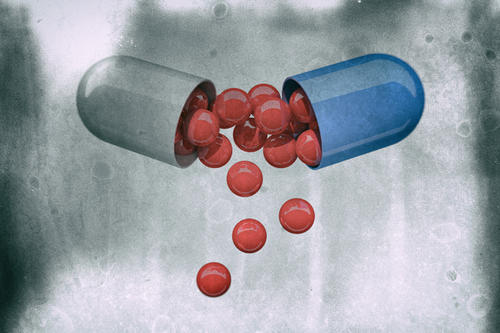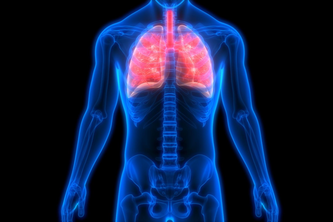
Researchers Michael Sadowsky and Alexander Khoruts have a proven record using Fecal Microbiota Transplantation (FMT) to treat severe Clostridium difficile infection (CDI), a potentially deadly GI infection on the Centers for Disease Control’s list of top infectious disease threats. New work by the team seeks to extend these benefits to diseases like autism, obesity, and metabolic syndrome, and develop new delivery systems for FMT.
Single-dose FMT Capsule Effective in Treating C. diff Infection
Early studies by the group demonstrated that FMT was highly effective in treating CDI. A standardized donor program and banking of purified microbial communities (microbiota), facilitated the acceptance of FMT by the mainstream medical community. Professional societies like the American College of Gastroenterology now endorse FMT to treat CDI.
But the treatment relied on colonoscopy to implant donor-derived microbiota in patients. To address storage and handling issues introduced by the liquid preparation, the team began looking at alternative delivery systems. Following rigorous, systematic testing, the group succeeded in developing an encapsulated preparation that was stable at different temperatures—an important feature for storage and shipping—and contained the full diversity and viability of donor microbiota.
Two new studies published in the American Journal of Gastroenterology and Gut Microbes demonstrated the efficacy of the encapsulated, freeze-dried fecal microbiota in the treatment of severe CDI.
Of the 49 patients treated in the new study, 87.8% showed no recurrence of CDI after two months. Analysis of the patients’ microbiomes revealed their normalization after one month. This process, while slightly delayed compared to FMT administered through colonoscopy, did not seem to impact therapeutic outcomes. More significantly, the study also demonstrated the efficacy of lower doses of fecal microbiota consisting of just a couple of capsules. Reducing the dose by an order of magnitude leads to economies of scale that could eventually make FMT a cost-effective option for all CDI patients. “The success of this treatment relied on two factors: our ability to effectively freeze-dry these microbes while maintaining their ability to grow again and the identification of a capsule vehicle that allowed deposition in the lower GI tract,” Sadowsky says.
Khoruts and Sadowsky believe the encapsulated formula is ideal for randomized, placebo-controlled trials and could enable additional studies. High throughput DNA sequencing allows the team to follow the microbiota in the intestine following administration of capsules and study the engraftment process. “It represents a new frontier in medicine,” Khoruts says. “Other diseases and clinical conditions may also benefit from effective microbiota-based therapy.”
Microbiome Study Shows Improvement in Autism Symptoms after FMT
Khoruts and Sadowsky are also taking a unique approach to the treatment of autism spectrum disorder (ASD), focusing on GI symptoms that often contribute to behavioral symptoms and interfere with the treatment of children with ASD.
“Gut inflammation is very common in children with autism, who typically show a 25% reduction in the diversity of the gut microbiome,” says Michael Sadowsky. “At the University of Minnesota, we’ve demonstrated success using fecal microbiota to treat patients with severe Clostridium difficile disorder, and there’s hope that FMT will be useful in treating complications from other conditions associated with the gut. FMT alone won’t cure autism, but it can alleviate symptoms, making behavioral and other therapies more effective.”
The team was part of an Open Label study, recently published in the journal Microbiome, that demonstrated an average 80% improvement in gastrointestinal symptoms (abdominal pain, constipation, and diarrhea) and a 20-25% improvement in behavior symptoms associated with autism. The UMN team provided the material for the fecal microbiota transplant used in the study, which was led by Arizona State University and included collaborators from Northern Arizona University and Ohio State. They also helped design this Phase I trial, intended to demonstrate the safety and efficacy of the therapy in children with ASD.
With the success of the first study designed to demonstrate safety and efficacy, the research team plans a follow-up Phase 2 trial. If approved by the FDA, the randomized, double-blind, placebo-controlled, and multi-site study will lead the team one step closer to its goal of providing an effective microbiota therapy for children diagnosed with ASD.
Laying the Groundwork for Future Research: New FDA Study to Investigate Ideal Conditions for FMT
Both the CDI and autism studies point to the role of engraftment, the ability of the gut microbes from the donor to colonize and survive in the new host. In earlier studies, heavy doses of antibiotics wiped the slate clean, clearing the patient’s microbiome in preparation for FMT. Khoruts and Sadowsky received FDA approval for a new clinical trial to test the importance of antibiotics in the engraftment process. In the current study, focused on individuals with pre-diabetes, participants receive either a standardized round of antibiotics or a placebo. Following FMT, the study team will use genomic sequencing to compare the microbiome of the donor and patients. They hope their results will help determine best practices and build the expertise and infrastructure required for future large-scale studies of FMT in the treatment of diseases like diabetes, metabolic syndrome, and inflammatory bowel diseases. “Many investigators and patients saw the spectacular success of FMT in treating CDI and thought this could be easily replicated in other diseases. However, it is not that simple. CDI is almost entirely driven by antibiotic exposure, and considerable work is required to define effective protocols that would enable similar microbiota engraftment for other conditions.”
Creating an FMT Biobank
Khoruts and Sadowsky’s team was the first to develop the underlying protocol for an FMT Biobank. The FMT donor program has been operating for years now. With the infrastructure for collecting and manufacturing of fecal microbiota in place, Khoruts hopes to make the donor material widely available for both research and therapeutic applications. Ramping up to make donor material available for teams around the country would require a modest investment. “Part of the economic viability stems from the fact that the dosage required is so small, at least in treating CDI,” says Khoruts. “Bacteria proliferate. The donors are there; the doses are not that high, so one donation can go a long way for C. difficile disease. The only reward we seek is seeing more patients get better. You can’t put a price tag on that.”
- Categories:
- Science and Technology





